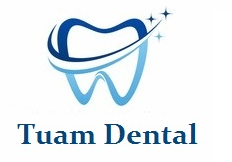FAQ
Can my dentist detect oral cancer?
Yes, unlike other cancers early the signs can be detected by both dentists and doctors. Oral cancer like any other cancer has the best chance of being cured if diagnosed early.
How does the dentist check for oral cancer?
An examination of the oral cavity for oral cancer and other suspicious lesions forms part of the normal “dental check-up” If a suspicious lesion is found, a patient will be referred to a specialist for further investigation.
What causes bad breath?
There are a number of causes of bad breath. Foods and drinks such as garlic, onions and alcohol can affect the air you exhale and cause bad breath.
Dry mouth or xerostomia is a decrease in saliva in the mouth and can cause bad breath, as saliva keeps decay and gum disease under control and removes unwanted particles from the mouth. Your dentist may recommend an increase in fluid intake, sip on water, use sugarless gum or sweets or even artificial saliva.
Smoking/Tobacco can cause bad breath when it is exhaled and as it decreases salivary flow It also causes gum disease and bone loss.
Oral hygiene: Poor cleaning and infrequent visits to the dentist are the most frequent factors in bad breath. Plaque builds up on the teeth and gums but regular brushing and flossing will remove the majority of this material. If any remains, such as in difficult to reach areas between teeth or on the inside of teeth, the plaque will physically attach to the tooth and further build up occurs. This material is known as tartar or calculus. This hard material cannot be brushed or flossed off the teeth and so it has to be removed by the dentist or hygienist. If plaque and calculus is not cleaned off the teeth and gums it can cause bad breathe, gum disease and bone loss.
When should I bring my child for their first dental visit?
It is recommends that you take your child for a first dental visit within six months of the appearance of the first baby tooth and by no later than the first birthday.
What are fissure sealants?
A fissure sealant is a varnish which flows into the deep grooves and is bonded to the surface. These will protect the tooth and prevent a cavity from forming on the biting surface. 80% of all cavities in Irish children are on this biting surface so sealants have an important role in preventing cavities on these teeth. Sealants are occasionally used on baby teeth if required.
